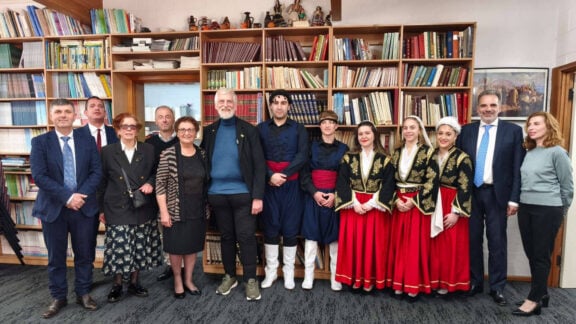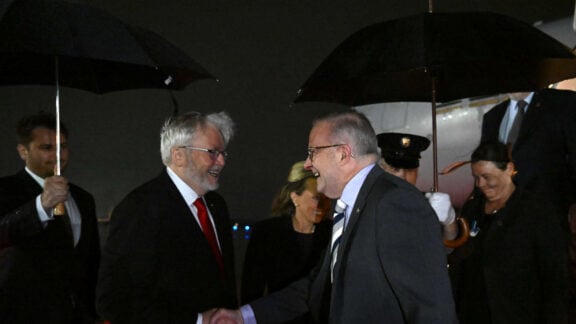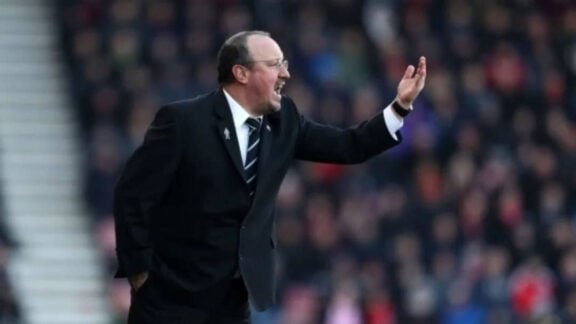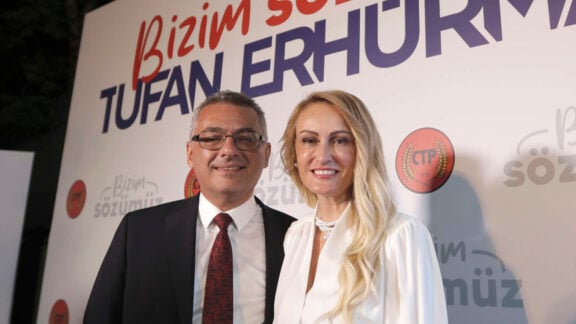So far this season, the dealings and moves by AEK Athens have veered from inept to farcical, from head-scratchingly quizzical to head-in-hands inadequate and from infuriating to Keystone cops-like incompetent.
On Wednesday night, however, it decided to surprise everyone, as it jumped into its DeLorean and went hunting for solutions in the not-so-distant past. When it appeared back in the present, it brought with it a familiar face: Manuel ‘Manolo’ Jimenez, the Spaniard who led the team to Greek Cup glory back in 2011. In a move that was finalised on Thursday, ‘Manolo’ will take over the reins of the Athenian club until the end of the season and, depending on the team’s performance, could see his contract extended by a further 12 months.
For anyone who has difficulty remembering the Spaniard’s last run as AEK head coach, that’s quite alright. In truth, he wasn’t there for that long. Taking over from Dusan Bajevic in October of 2010, Jimenez spent just under a year in Athens, carrying with him a CV whose principal highlight was his three-year tenure as manager of Sevilla, a bright team that over the years has fascinated football fans the world over with its take on scintillating, attacking football.
Having arrived in Athens as AEK’s answer to Ernesto Valverde (who was making a name for himself at Olympiakos at the time), it didn’t take long for his new managerial relationship to show signs of strain. Despite his cup winning run in the 2010-2011 season, which culminated with a 3-0 win in the final against Atromitos, Jimenez was a ‘for the fans’ merchant, a manager whose hand-slapping-the-chest histrionics would secure him a significant slice of sympathy cake from the AEK’s fanatical support, but whose tactical shortcomings eventually caught up with him.
Veering from impressive wins to crushing defeats became a staple of the short-lived Jimenez era and ‘Manolo’ found it increasingly difficult as time went on to rationally explain his team’s tendency to switch off for entire matches and why he seemed unable to shore up a defence that would often have an air of Swiss cheese to it.
He left to join Zaragoza, with a sizeable portion of the sports media at the time labeling him a charlatan and an abject failure. Harsh though such criticism was, it had more than a hefty dose of truth to it.
All of which brings us back to the present. On Wednesday night, AEK Athens suffered yet another defeat, this time at the hands of Panaitolikos – a team whose chairman and manager had stepped down just days before – leaving the Athenians with just three wins in 14 games under Jose Morais. Morais, who had earlier in his career served as an assistant to Jose Mourinho both at Inter and at Real Madrid, did the AEK board a favour by resigning from his post – a managerial appointment that will surely go down in Greek football history as one of the most inexplicable selections of all time – who then scrambled to find a replacement with the professional expertise to save a listing ship.
It could be argued that not even Mourinho himself could do much to plug the holes in this AEK side, but even so, the appointment of Jimenez not only screams of desperation, but it points to a board – and let’s face it, an owner in Dimitris Melissanidis – completely out of touch with reality.
Jimenez is not a name that inspires confidence. Unemployed for the best part of two years, the Spaniard was last in charge of Al-Rayyan, the Qatari club that hired Jimenez in 2013, only for the former Seville man to lead them crashing down into the second division. For a team severely lacking both in confidence and a definite game-plan, it just doesn’t seem like a choice that could kickstart their shambolic season.
Nevertheless, Jimenez it is. Melissanidis and his team looked over all available choices and opted for something they – kind of – knew. Already, a section of the media has talked about Jimenez being a man that “knows the atmosphere of the club”, a person that “will remind all players currently on the roster what being an AEK player really means”. If it sounds vague, it’s because it is. Jimenez will not and cannot be expected to know what “being an AEK player really means”. His last point of reference with Greek football seems a lifetime away now, during a time when Greece – and its football product – was very different. Moreover, it seems comical to think that a manager who is essentially out-of-touch with modern football could be effective in communicating what needs to be done to make any true steps forward.
But for the sake of the argument, let’s assume that Jimenez 2.0 will be a brighter, faster, more effective model. What tools will he have at his disposal? Who can he possibly count on to change things up on the pitch? Setting aside the center of midfield, where AEK appear to be reasonably stocked with Jacob Johansson, Andre Simoes, Petros Mantalos and exciting prospect Kostas Galanopoulos, there seems to be no other area on the playing field where AEK have made wise choices. A team that was in theory built to play a 4-3-3 or a 4-2-3-1 – and had league winning aspirations on top of that – currently has no dependable left back, no match winning center-forward, effectively no wingers and is still looking for a steady central defensive pairing.
Could Jimenez surprise everyone and galvanise AEK, saving their season with yet another cup winning run and playoff success? Well sure. After all, miracles sometimes happen.
But for Dimitris Melissanidis, the team’s owner and the man who has so far bombastically talked of fantastic stadiums, unbeatable AEK teams and big money transfers and delivered next to nothing, it is perhaps time to stop betting on wildcards and nostalgia and focus on realistically running a football team.









